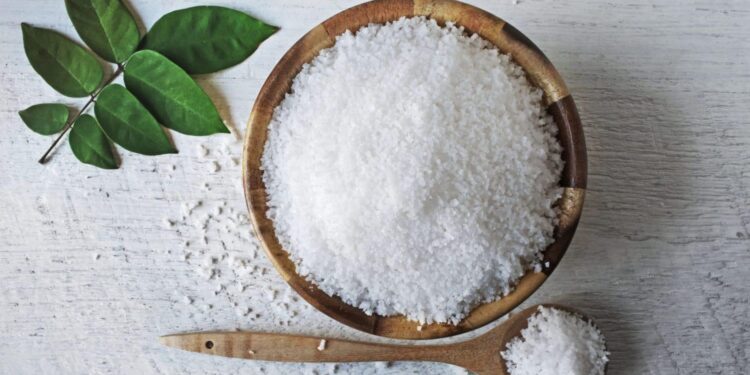New research is shedding light on a surprising culprit behind cognitive decline: excessive salt intake. According to a recent study highlighted by ScienceDaily, consuming too much salt may do more than just affect your heart and kidneys-it could actually hijack your brain’s function. Scientists are now uncovering how high-sodium diets might interfere with brain health, potentially impairing memory and increasing the risk of neurological disorders. This groundbreaking discovery adds a new dimension to the ongoing conversation about dietary habits and their impact on mental well-being.
How Excessive Salt Intake Impacts Cognitive Function and Brain Health
Recent studies reveal that consuming too much salt can significantly impair cognitive functions by disrupting the brain’s delicate neural networks. High salt intake triggers inflammation and oxidative stress in brain tissues, which can lead to memory loss, reduced learning abilities, and slower information processing. The excess sodium causes a cascade of cellular damage, particularly in areas such as the hippocampus-an essential region for forming and retrieving memories. Researchers also point to the compromised blood-brain barrier as a critical factor, allowing harmful substances to penetrate and exacerbate neural decline.
Key effects of excessive salt on brain health include:
- Inflammation of brain cells that accelerates cognitive decline
- Altered neurotransmitter function affecting mood and alertness
- Increased risk of developing neurodegenerative diseases such as Alzheimer’s
- Reduced cerebral blood flow, leading to lowered brain efficiency
| Brain Impact | Result | Severity |
|---|---|---|
| Hippocampal Damage | Memory Impairment | High |
| Neuroinflammation | Slower Cognitive Processing | Moderate |
| Blood-Brain Barrier Breakdown | Increased Neurotoxicity | Severe |
The Science Behind Salt Induced Brain Inflammation and Memory Loss
Emerging research identifies excessive salt consumption as a significant factor that triggers neuroinflammation, a condition closely linked to cognitive decline. High salt intake disrupts the delicate balance of immune cells in the brain, particularly activating microglia, the brain’s resident immune defenders. Once overstimulated, these cells release inflammatory molecules that impair synaptic connectivity and interfere with neural communication, which are critical for memory formation and retrieval.
Several mechanisms contribute to this harmful cascade, including elevated blood pressure, oxidative stress, and changes in neurotransmitter function. Key highlights include:
- Blood-Brain Barrier Disruption: Excess salt compromises this protective barrier, allowing toxins and inflammatory agents to infiltrate brain tissue.
- Immune System Overactivation: High sodium levels trigger a maladaptive immune response, increasing cytokine production.
- Reduced Neuroplasticity: Inflammation hampers the brain’s ability to adapt, learn, and store new memories effectively.
| Effect | Impact on Memory | Biological Marker |
|---|---|---|
| Microglial Activation | Synaptic weakening | IL-1β ↑ |
| Blood-Brain Barrier Leak | Increased neurotoxicity | Albumin presence |
| Oxidative Stress | Neuronal damage | Reactive oxygen species ↑ |
Practical Steps to Reduce Salt Consumption for a Sharper Mind and Better Wellbeing
Cutting back on salt doesn’t have to be a daunting task. Start by reading nutrition labels carefully to identify hidden sodium sources, such as processed and packaged foods. Cooking meals at home allows you to control salt levels, while substituting salt with herbs, spices, lemon juice, or vinegar can maintain flavor without compromising health. Reducing consumption of fast food and restaurant meals is also essential, as these often contain excessive salt designed to enhance taste but potentially harm brain health.
Incorporate these simple habits into your daily routine to support cognitive function and overall wellbeing:
- Replace regular soy sauce with low-sodium versions
- Choose fresh or frozen vegetables over canned
- Use unsalted nuts and seeds as snacks
- Limit intake of processed meats like sausages and deli cuts
- Drink plenty of water to help balance sodium levels
| Food Category | Typical Sodium Content (per serving) | Low-Sodium Alternative |
|---|---|---|
| Canned Soups | 900 mg | Homemade Vegetable Broth (100 mg) |
| Processed Cheese | 400 mg | Fresh Mozzarella (50 mg) |
| Frozen Pizza | 700 mg | Whole Wheat Flatbread with Fresh Toppings (150 mg) |
| Pickled Snacks | 800 mg | Fresh Cucumber Slices with Lemon Juice (10 mg) |
Final Thoughts
As research continues to unravel the intricate effects of diet on brain health, the warning signs about excessive salt consumption have become increasingly clear. The findings highlighted in this study underscore the importance of monitoring salt intake not just for cardiovascular well-being, but also for preserving cognitive function. With salt consumption deeply embedded in many diets worldwide, public health initiatives may need to sharpen their focus on educating the public about these hidden neurological risks. Staying informed and making mindful dietary choices could be key steps toward protecting your brain from the silent, yet impactful, consequences of too much salt.










